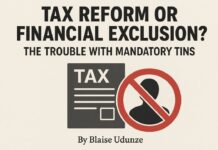By NIyi JACOBS
The Nigerian telecommunications industry is witnessing another wave of turbulence as 9mobile, once regarded as a rising star in the sector, grapples with investor lawsuits and growing subscriber dissatisfaction. The company, which has struggled to regain stability since its acquisition by LH Telecommunication Limited in July 2024, continues to face operational challenges that are now spilling into the courts.
In a statement released on March 21, 2025, 9mobile denied rumors of a shutdown, describing the claims as baseless and intended to cause unnecessary panic among subscribers. This response came on the heels of numerous complaints from users experiencing deteriorating service quality and persistent challenges in porting from the network to others. The telco admitted that technical issues had affected the Mobile Number Portability (MNP) service but insisted that it had not imposed any restrictions on customers wishing to switch networks.
However, the acknowledgment of technical problems by 9mobile only scratches the surface of a more profound crisis. The company’s inability to provide seamless service has left many customers frustrated. Despite its efforts to address the complaints and assure customers of improved service, the reality remains grim. As of January 2025, data from the Nigerian Communications Commission (NCC) showed that 9mobile’s active subscriber base had plummeted to 3.2 million, a far cry from its peak of over 22 million subscribers in 2016.
The mass exodus of subscribers underscores the significant impact of persistent service disruptions and poor network quality. Many subscribers have cited difficulties in making calls, receiving messages, and maintaining stable internet connections as reasons for leaving the network. These challenges have not only affected individuals but also businesses relying on 9mobile’s services for their operations.
The timing of the technical challenges could not be worse. 9mobile is currently embroiled in a legal battle, with investors dragging the company and its new owners, Teleology Holdings, before the courts. The investors allege that promises made regarding network improvements and financial stability have not been met. The court case also implicates several regulatory bodies, including the NCC and the Central Bank of Nigeria (CBN), raising questions about oversight and regulatory effectiveness in the sector.
This legal tussle is particularly concerning given that LH Telecommunication Limited, the new investor approved by the African Export-Import Bank (AFREXIM) as the senior lender to 9mobile, had promised to reposition the company through significant capital injection. The transaction, which saw 95.5% of 9mobile’s shares transferred to the new investor, was supposed to bring much-needed financial stability and operational improvements. Yet, nearly a year later, subscribers are still waiting for these promises to materialize.
The company’s management maintains that the disruptions experienced by subscribers are part of a broader transformation aimed at modernizing its infrastructure and enhancing overall service quality. It reiterated its commitment to transparency, customer satisfaction, and compliance with industry regulations. According to the statement, ongoing investments in network upgrades and service expansion would soon result in substantial improvements, ensuring reliable connectivity for individuals, businesses, and communities alike.
Despite these assurances, the company’s struggles continue to erode public confidence. While 9mobile insists that the technical issues are temporary and mostly resolved, subscribers remain skeptical. Complaints about failed attempts to port to other networks continue to surface, further damaging the company’s reputation.
The failure of 9mobile to resolve these issues swiftly has not only affected its customer base but also raised concerns among investors. The ongoing court case highlights a deeper crisis of confidence that could potentially derail whatever progress the company hopes to achieve through its restructuring efforts.
Industry analysts point out that 9mobile’s challenges are partly due to the company’s inability to attract substantial new investments since its change of ownership. The capital injection by LH Telecommunication Limited was expected to address these issues, but the desired outcomes have yet to be seen. The company’s financial health remains precarious, with dwindling revenues and a shrinking subscriber base compounding its problems.
Furthermore, the court case involving investors is likely to complicate 9mobile’s efforts to regain stability. Investors have expressed dissatisfaction with the slow pace of progress, particularly in terms of network improvement and profitability. The legal dispute could also create a hostile business environment that discourages further investment and complicates ongoing restructuring efforts.
For the Nigerian Communications Commission and the Central Bank of Nigeria, the lawsuit raises important questions about regulatory oversight and the broader implications for the telecommunications sector. How well these agencies respond to the issues raised by investors and subscribers alike will be critical in determining the future of 9mobile.
The NCC, in particular, will need to demonstrate its capacity to enforce regulations that protect consumer rights while also ensuring that telecom operators remain viable. If 9mobile’s situation continues to deteriorate, it could create a negative precedent that undermines investor confidence in the broader Nigerian telecommunications industry.
Looking ahead, 9mobile faces a daunting task of rebuilding trust among both its subscribers and investors. The company’s management appears optimistic, emphasizing that its ongoing network improvements will eventually bear fruit. However, without tangible results to support these claims, the patience of stakeholders is wearing thin.
The challenges faced by 9mobile highlight the complexities of running a telecommunications company in an environment where infrastructure development, financial stability, and customer satisfaction are interdependent. While the company’s leadership remains vocal about its commitment to improvement, only visible and measurable progress can restore confidence.
The court case and ongoing subscriber dissatisfaction represent a critical test for 9mobile’s new owners. Successfully navigating this period of uncertainty will require not only financial investment but also strategic decision-making that addresses the root causes of the company’s problems.
The question now is whether 9mobile can rise from its current challenges and regain its position as a competitive player in the Nigerian telecommunications landscape. For now, the answer remains uncertain, but one thing is clear: 9mobile’s future will be determined by its ability to effectively manage the delicate balance between customer satisfaction, regulatory compliance, and investor expectations














